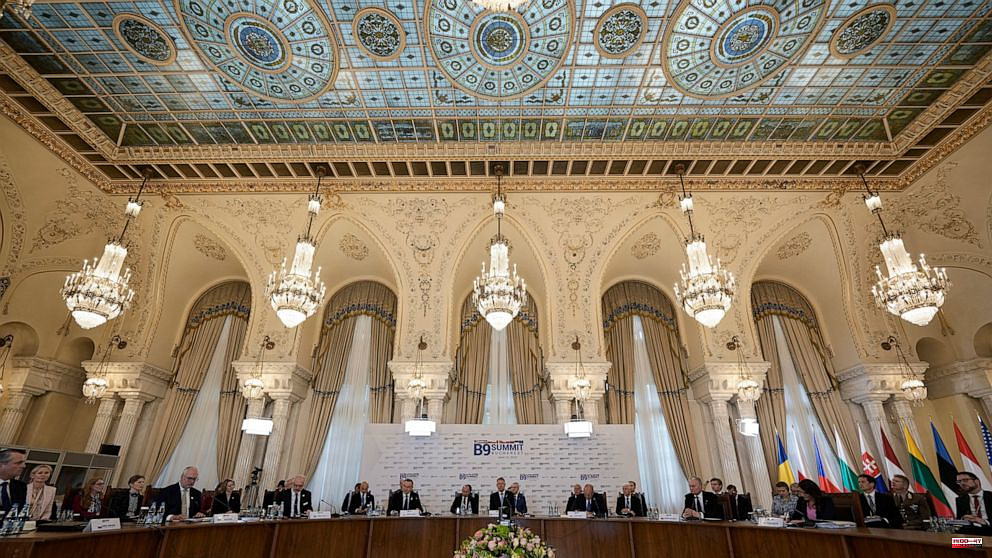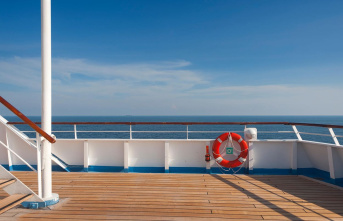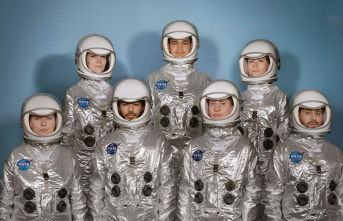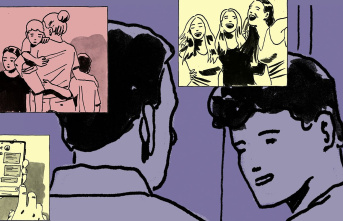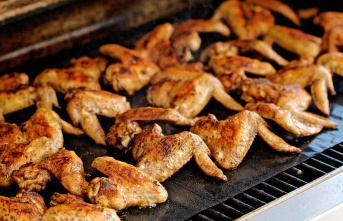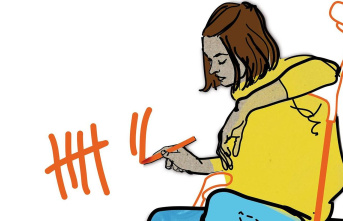BUCHAREST (Romania) -- Nine NATO countries on the alliance's Eastern flank met Friday in Romania in preparation for a crucial NATO summit later in the month. Some leaders urged NATO to increase protections for them given Russia's protracted war with Ukraine.
Friday's summit in Bucharest offered a forum for NATO's Eastern member countries to discuss regional security concerns and form a united voice within their 30-member security alliance. Participants included Romania, Poland and Hungary, Bulgaria, Romania, Slovakia, Estonia. Latvia.
After Friday's meeting, Klaus Iohannis, Romanian President, stated that NATO must be able to respond to all threats. "Alliance must be able defend every inch of its territory."
Iohannis stated, "The end we are pursuing, is a consolidated NATO existence on the Eastern Flank. It should be united and coherent, strong, credible, and sustainable especially on the Black Sea, the most vulnerable to Russia's threats."
The Black Sea is a strategic battleground for the war in Ukraine and borders three NATO members, Turkey, Romania, and Bulgaria.
NATO will hold a summit on "Strategic Concept" in Madrid at the end June to reaffirm its purpose and values, and map out its future goals.
Andrzej Duba, the Polish President, stated Friday that he also expects an increase in U.S. involvement in Europe and that he would like to see more NATO troops in Eastern Flank countries.
He stated that NATO's enhanced forward presence on the eastern flank should be expanded. "We want existing battalion units to be converted into brigade units."
Duda stated that a brigade group contains 3,000 troops. This would indicate a "significant, visible strengthening."
NATO increased its presence in the Eastern Flank after Russia invaded Ukraine. It added four multinational battle units to Romania, Slovakia, Hungary and Romania. This brings the total battle group count to eight. They span from the Black Sea in south to the Baltic Sea north.
NATO Secretary General Jens Stoltenberg was due to join the leaders at Bucharest. He joined the forum via video, having contracted shingles. Stoltenberg stressed that it was important to continue defense spending for Eastern Flank leaders, and praised "the fact many of them exceed or meet the 2% GDP target on defense spending."
Iohannis stated that he supports strengthening NATO relations with regional partners, who are highly exposed to Russian pressures and aggression." He also expressed his support for NATO's "Open Doors" policy and Sweden's and Finland's bids to join NATO.
He stated that "the accession of these countries will contribute to strengthening security of the Alliance as an entire."
During the Cold War the Eastern Flank countries that make up the Bucharest Nine group, which was launched in 2015 by Poland and Romania, were all under the control of Moscow. The three Baltic states were incorporated into Soviet Union. They are now all members of NATO or the European Union.
------
Dumitrache was based in Bucharest, McGrath came from Sighisoara (Romania), and Monika Scislowska from Warsaw, Poland.
------
Follow AP's coverage of the Ukraine war at https://apnews.com/hub/russia-ukraine

